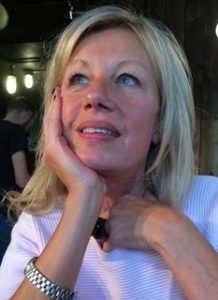 Tell us a bit about your career story so far.
Tell us a bit about your career story so far.
I started out as a science and PE teacher. I used to teach sex education through sciences, but I also used to take girls in the minibus to play hockey matches and that’s when I really learnt about what they did and didn’t know about their sexuality and relationships.
Then in the late 80’s and early 90’s HIV came along. I realised how scary this whole thing was and that not enough was being done, so I devised my own curriculum to teach kids about HIV and safe sex, partly to dispel the homophobic and racist stereotypes around HIV. I realised sex education was a great vehicle for exploring identities and challenging prejudices.
As a result of that work I was seconded to the local authority as an advisory teacher, taking that curriculum around all the schools in Sheffield. Then a post came up at what was then Sheffield Polytechnic.
Initially my teaching was related to HIV from a health science perspective but I had started to read up on the stigma attached to the virus and that’s how I moved into teaching sociology and making the jump from pure science to social science.
I got my PhD while working here and progressed from lecturer to senior lecturer and then reader, before becoming a professor in 2015.
What does it mean personally to you to be a professor at Sheffield Hallam? What do you value about it?
I never set out to be a professor but now I’ve achieved it I value it for a whole host of reasons:
- The external recognition of my contribution to knowledge and its application.
- I was the first person in my family to go to university. To then go on to become a professor, with the status and merit that title holds, gives me a sense of pride.
- Being a woman in a leadership position and narrowing the gender gap is really important to me.
- Being a professor gives me more opportunity to lead and influence strategic direction and change, as well as more power to challenge and speak up.
- The title is almost an automatic qualification for leading on research bids, and this attracts interest for partnership working from others, internationally, nationally, and locally.
- I’m in a position to share my expertise and experience, offering mentorship to those earlier on in their careers.
- I have more time to focus on my own research and scholarly activity.
If you could go back in time and give yourself some career advice, what would it be?
- Get a mentor, but only stick with it if the relationship is productive. If not, change it.
- Make sure you’re clear on the promotion criteria and discuss with your PDR reviewer where you think you are in relation to those. Think well ahead, plan and be strategic about your development
- Be external-facing. Develop meaningful external relationships and get involved with multi-agency committees etc.
- Be collegial – commit to team working and involve early career academics in your work to give something back
- Log everything you do – especially activities with external bodies. Keep a note of dates, who you worked with, what you did, any feedback or evaluation data etc. You’ll thank yourself when you’re putting your application together.
- Don’t be coy! In your promotion application you have to big yourself up and stress your standing in the field and the impact of your work. This can be hard, especially for many women, so start practising!
Tell us about your work as a professor.
I teach on a master’s course in research which I really love because it’s an opportunity to really draw on my own research experience to help students. When your research interests coincide with your teaching interests it makes it sparkle a bit. I give guest lectures on other modules too. And I also do quite a lot of doctoral and masters’ supervision.
There’s my own personal research, data analysis and writing funding bids and journal articles. I also review bids and papers that colleagues have written. I’m part of the research leads team in the Department of Psychology, Sociology and Politics. I’m responsible for research support and development in the department which involves:
- Coordinating the department’s mentoring and sabbatical schemes
- Organising writing retreats
- Leading and facilitating research support and interest groups
- Writing a monthly research newsletter
And then there’s the external work I do with local authorities, charities, the NHS and other similar organisations.